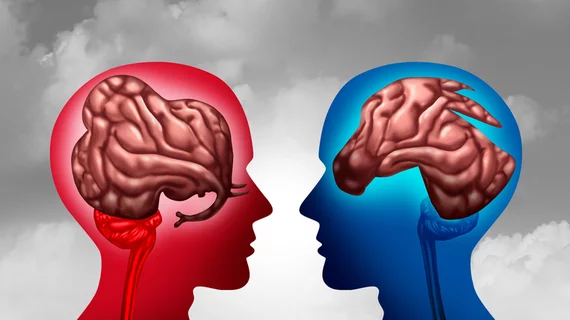Brain anatomy differs between people with opposing political ideologies
Conservative and progressive voters’ differences reach well beyond their political beliefs—even their brain structure differs.
New research indicates that conservatives have larger amygdalas than their more progressive-leaning counterparts. This study builds on prior work from 2011 that suggested there were associations with the size of an individual’s political ideology and the size of certain regions of their brain. Previously, researchers connected differences in the amygdala and anterior cingulate cortex (ACC) between both groups.
This latest study, however, was much larger than the previous one and offered greater detail into the neural variations. This time, researchers found that the difference in amygdala size might not be as significant as previously believed, though they did still observe connections.
“It was really a surprise that we replicated the amygdala finding,” first author and political psychology and neuroscience researcher Diamantis Petropoulos Petalas, of ahe American College of Greece, said in a release on the study. “Quite honestly, we did not expect to replicate any of these findings.”
Researchers analyzed nearly 1,000 MRI exams for the study. The imaging was compared alongside self-reported political ideologies, including socioeconomic stances and other hot button issues in politics.
“We see ideology as a complex, multidimensional product that includes different attitudes on social and economic matters, as well as identification with progressive or conservative ideals; it’s really not just about the left or the right,” Petropoulos said.
Similar to prior research, the team noted greater volume of gray matter in the amygdala in conservative leaning individuals. However, the association was three times smaller than what was observed in the previous study. Additionally, the group did not find associations between ACC size and political affiliation.
“The amygdala controls for the perception and the understanding of threats and risk uncertainty, so it makes a lot of sense that individuals who are more sensitive towards these issues have higher needs for security, which is something that typically aligns with more conservative ideas in politics,” Petropoulos said.
It should be noted that researchers were analyzing the anatomy of participants’ brains, not their function or connectivity. They suggested that future work should include structure and function assessments.
The study abstract is available here.

